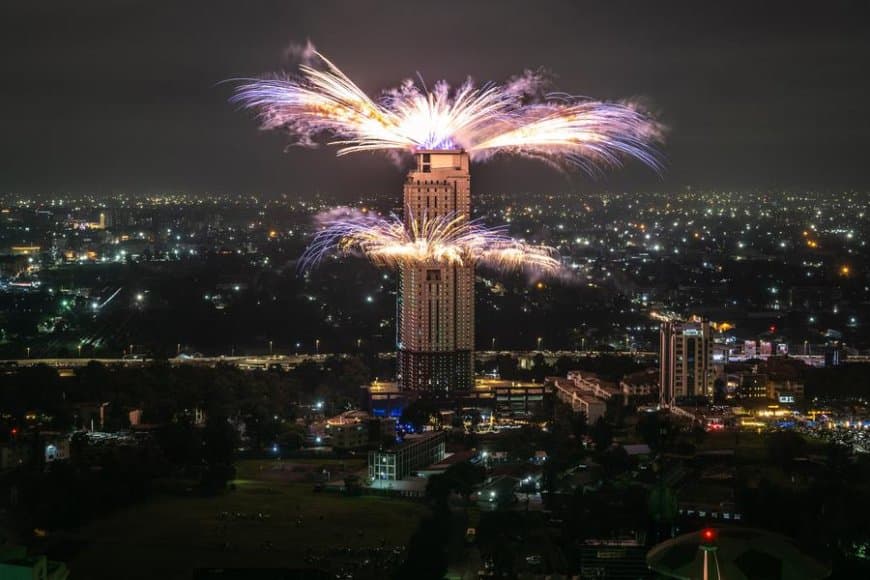We're loading the full news article for you. This includes the article content, images, author information, and related articles.
Kenyans planning fireworks displays for the upcoming Diwali and Hindu New Year festivities must adhere to stringent new safety regulations issued by the government, aimed at enhancing public safety and preventing accidents.

Nairobi, Kenya – The government has announced strict new guidelines for fireworks displays during the upcoming Diwali and Hindu New Year celebrations, which will run from Friday, October 17, to Monday, October 20, 2025. Cabinet Secretary for Mining, Blue Economy and Maritime Affairs, Ali Hassan Joho, issued the directives on Tuesday, October 14, 2025, emphasizing the need for public safety and orderly festivities.
Under the new rules, individuals and organisations planning fireworks displays are required to obtain permits from the State Department for Mining or their respective County Mining offices. Fireworks will only be permitted at authorised venues, including clubs, hotels, temples, sports grounds, school compounds, or any other location approved by an Inspector of Explosives. Displays are strictly limited to between 7:00 PM and 11:00 PM (EAT) during the four-day celebration period.
Diwali, also known as Deepavali, is a significant Hindu festival symbolising the triumph of light over darkness and good over evil. While traditionally celebrated with fireworks, the government's intervention underscores a growing concern for public safety and environmental considerations in densely populated areas. CS Joho, who previously served as the Governor of Mombasa County, was appointed Cabinet Secretary for Mining, Blue Economy and Maritime Affairs in July 2024.
The use of fireworks in Kenya is governed by the Explosives Act, Cap 115, and the Firearms Act. These laws outline the legal framework for purchasing, storing, transporting, and discharging explosives, including fireworks. The new directives reinforce existing legislation, making permits mandatory for all fireworks displays, whether public or private.
Key provisions of the updated regulations include a restriction on display shells to a maximum calibre of four inches in urban and built-up areas, unless an exemption is granted by an Inspector of Explosives. Furthermore, only qualified, experienced, and sober individuals are permitted to handle and ignite aerial shells and other high-altitude display fireworks.
The Hindu community, which traditionally celebrates Diwali with fireworks, has been urged by the Ministry to ensure displays are carried out in an orderly manner to avoid inconveniencing the general public. Fireworks dealers also face strict regulations, being prohibited from selling fireworks to children under the age of 13, an act that constitutes an offence under the Explosives Act, Cap 115. The sale of aerial display fireworks, such as shells, rockets, Roman candles, and cakes, is restricted to individuals holding valid permits certified and signed by an Inspector of Explosives.
The tightened regulations aim to mitigate risks associated with fireworks, including accidental fires, injuries, and noise pollution. Unauthorised use or sale of fireworks can lead to severe penalties, including substantial fines, confiscation of illegal fireworks, and imprisonment for endangering lives. These measures are crucial for ensuring that celebrations do not pose a threat to public safety or disrupt surrounding communities.
While the guidelines are clear, the effectiveness of enforcement across all counties and the capacity of county mining offices to process a potentially high volume of permit applications remain to be seen. There is also the perennial challenge of illegal fireworks being smuggled into the country or sold by unlicensed vendors, which could undermine the safety measures.
The Diwali and Hindu New Year celebrations officially begin on Friday, October 17, 2025, and conclude on Monday, October 20, 2025. Those planning displays must secure their permits well in advance of these dates. The Ministry of Mining, Blue Economy and Maritime Affairs will be responsible for overseeing compliance with these regulations.
The public will be watching how effectively these new safety measures are implemented and enforced throughout the Diwali period. The focus will be on the collaboration between national and county authorities to ensure a safe celebratory environment for all Kenyans.
Keep the conversation in one place—threads here stay linked to the story and in the forums.
Sign in to start a discussion
Start a conversation about this story and keep it linked here.
Other hot threads
E-sports and Gaming Community in Kenya
Active 9 months ago
The Role of Technology in Modern Agriculture (AgriTech)
Active 9 months ago
Popular Recreational Activities Across Counties
Active 9 months ago
Investing in Youth Sports Development Programs
Active 9 months ago
Key figures and persons of interest featured in this article